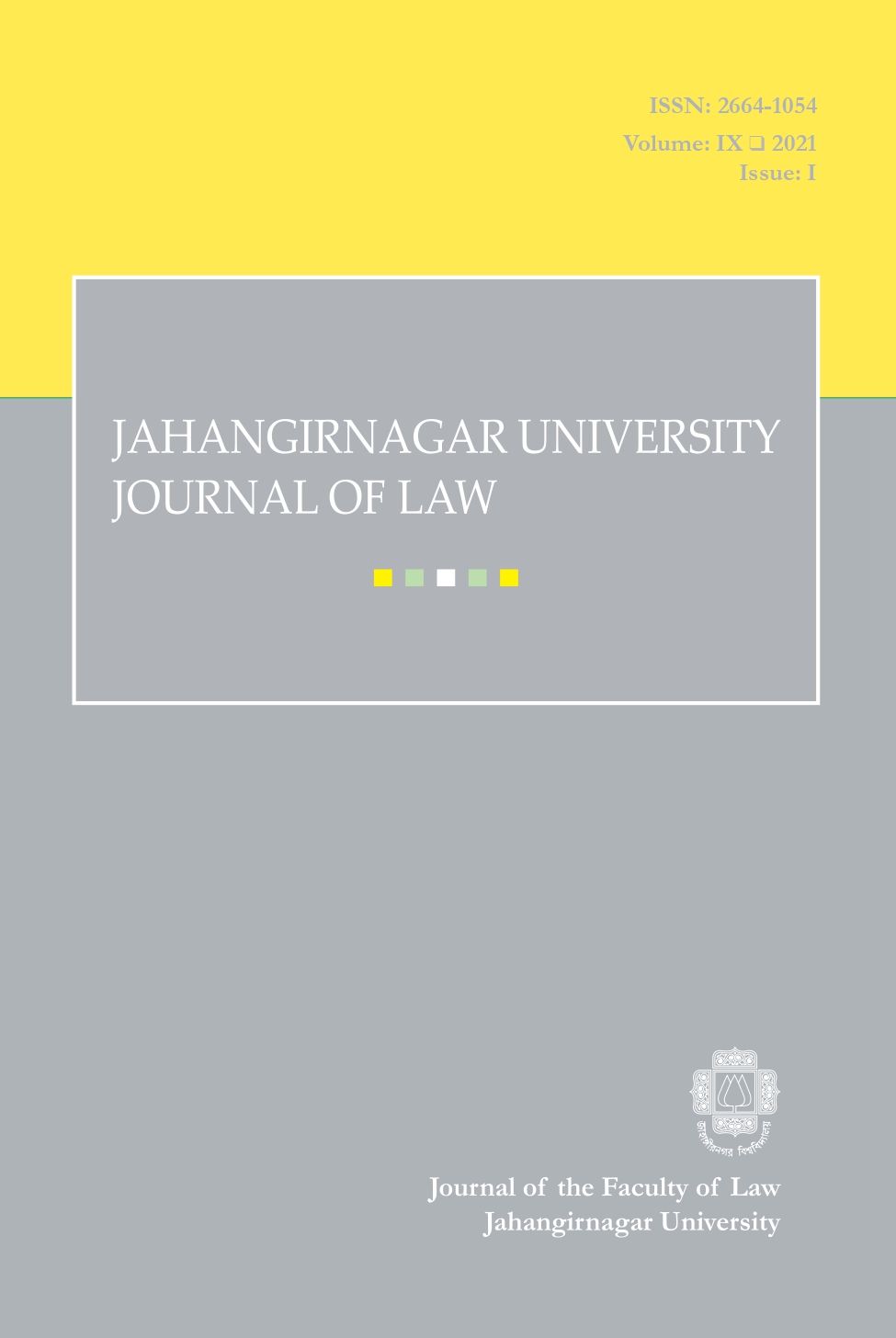The Conceptual Framework of Legal Pluralism and Its Practical Application: Listening to the Voices of Different Types of Law in the Case of Legal Reform in Bangladesh
Main Article Content
Abstract
This paper briefly examines existing theoretical approaches to law in order to illustrate the inadequacy of a traditional positivist framework. It aims to explain relevant pluralist theories arguing the need for legal pluralism, since it seems to make sense for Bangladesh or South Asia too, to subscribe to the argument that state law is never alone in the wider socio-legal field.1 Analyses of major legal theories and other associated issues provide a useful tool for better appreciation of subsequent analyses relating to the realisation of different sources of law in a particular society or community, and the apprehension of the position of existing reforms as well as the necessity and possibility of a further suitable reform policy for the Bangladeshi legal system. Thus, this paper argues that to effectively appreciate and tackle the legal system of a plural society like Bangladesh or any of the South Asian nations, the traditional positivist framework, based on Eurocentric monist legal methods, needs to be identified as insufficient and too state-centric. Instead, a more inherently plural, culture-specific and identity-conscious approach needs to be and is adopted, with due recognition given to all the elements of law or law-related entities, depending on which approach to legal pluralism theorising one wants to adopt.

